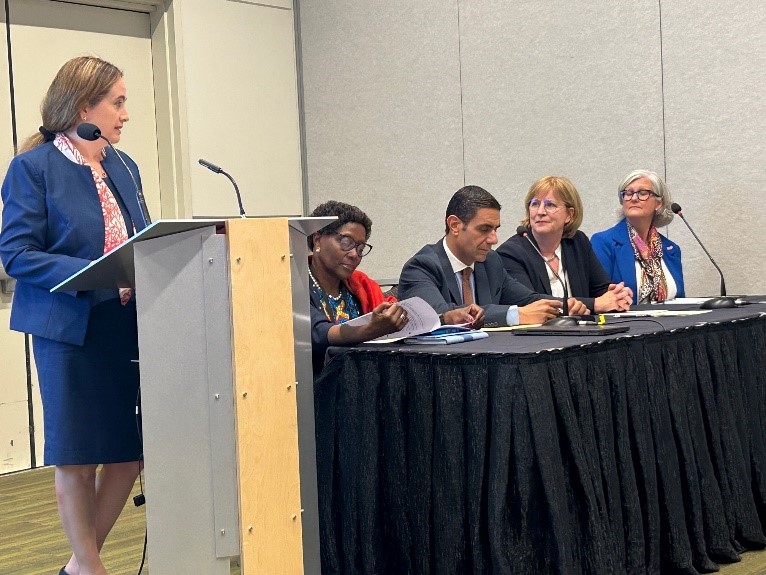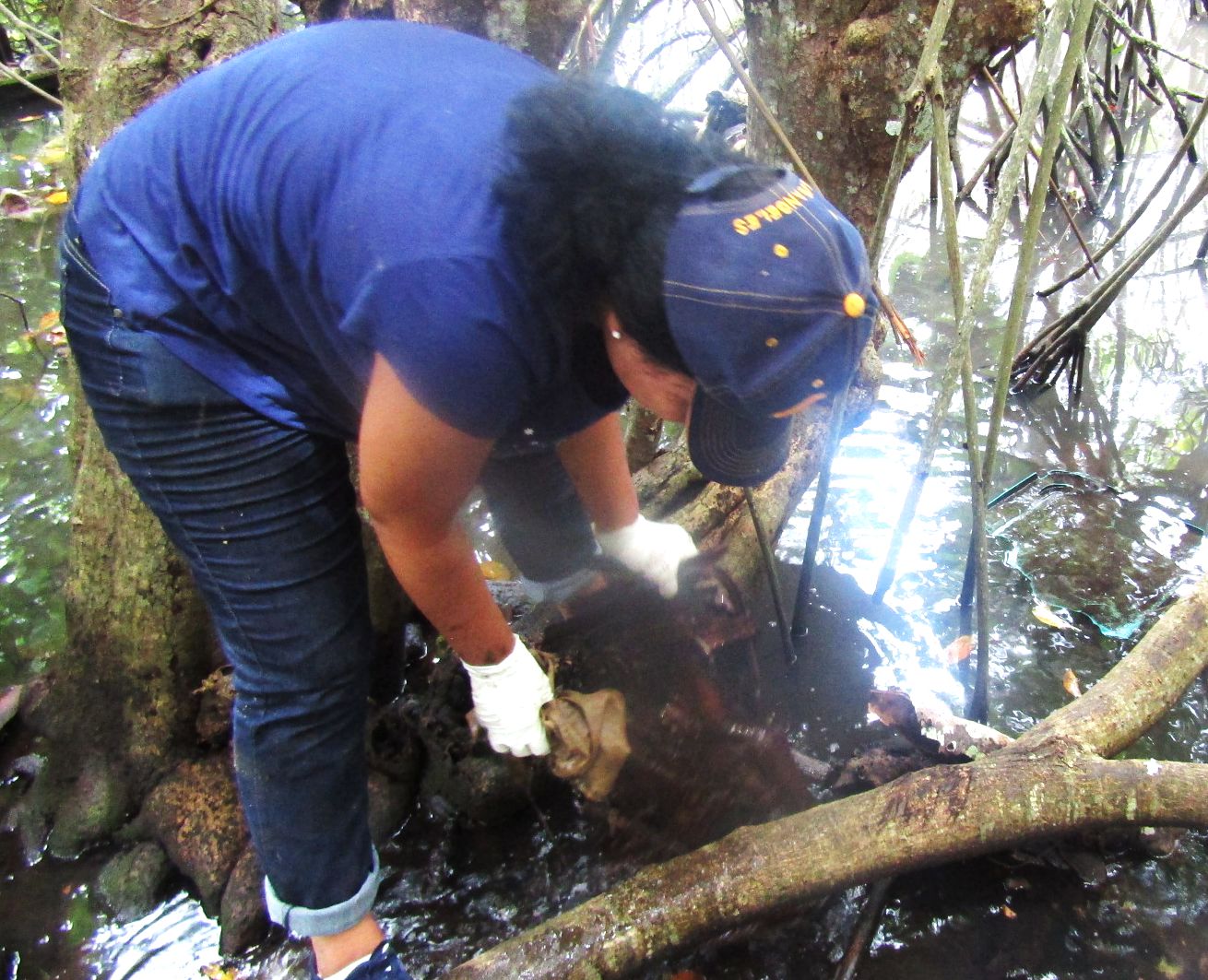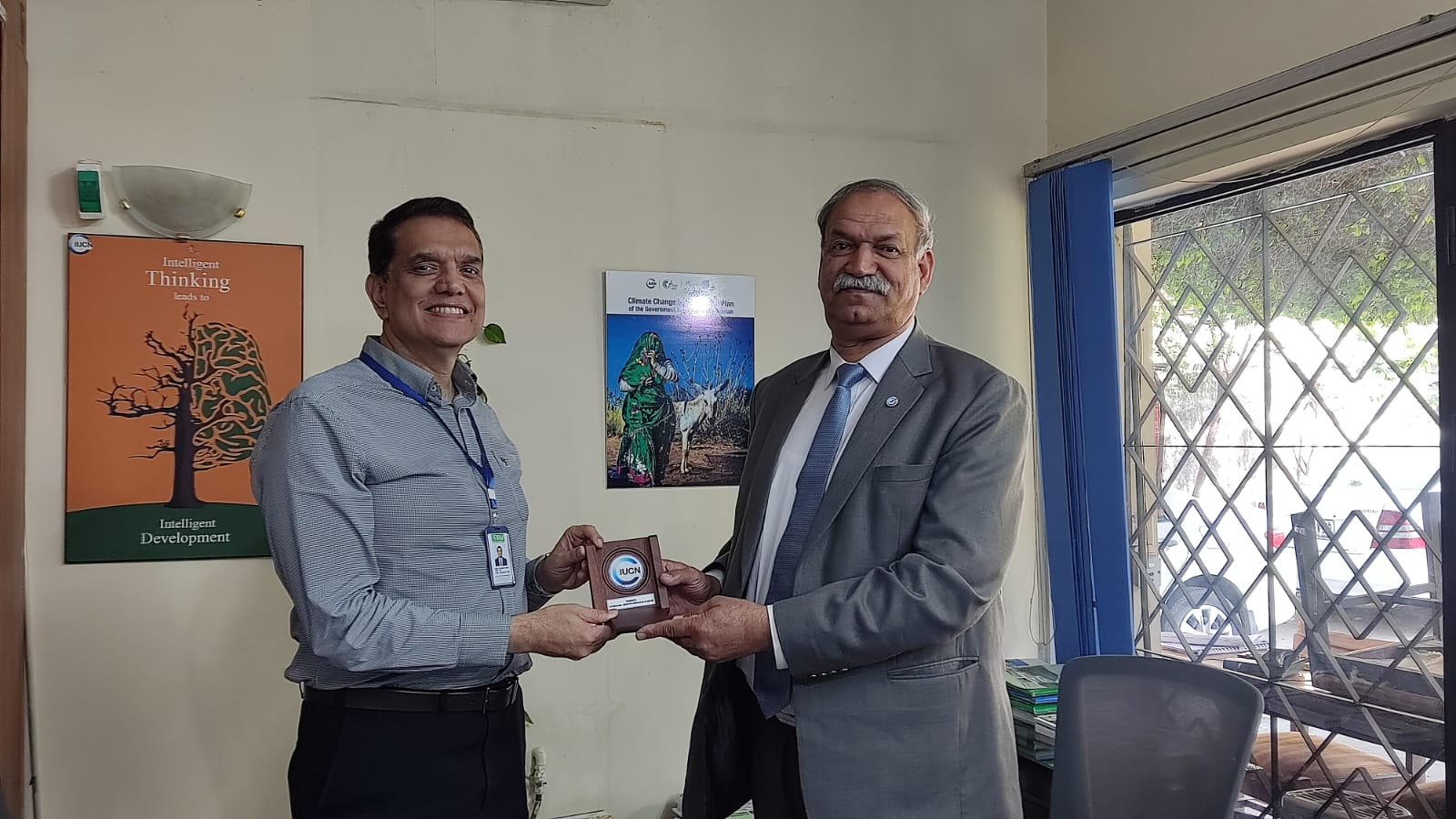7th GEF Assembly Event: ENACT – A global partnership to achieve biodiversity and climate goals through Nature-based Solutions
On the 22nd of August, international environmental leaders convened in Vancouver, Canada, for the opening of the 7th Global Environmental Facility (GEF) Assembly. Every four years, The GEF Assembly is held to coordinate the financing required to address urgent environmental concerns, including climate change, biodiversity loss, land degradation and pollution. IUCN is an Accredited GEF Implementing Agency, and its GEF funded portfolio continues to grow.

This year, an IUCN delegation led by Acting Director Dr. Grethel Aguilar hosted a side event showcasing the growing ENACT Partnership. ENACT was launched in December 2022 at the UNFCCC COP 27 - a collaborative effort between the Egyptian COP Presidency, the Government of Germany, and IUCN. The Partnership has built a worldwide network of state and non-state actors committed to advancing high-integrity NbS for biodiversity and climate goals.
Opening the side event, Mr. Ali Raza Rizvi, Head of IUCN’s Climate Change Unit, emphasised the need to address the linked crises of climate change, biodiversity loss, and land and ecosystem degradation through an integrated approach. Mr. Rizvi outlined ENACT’s ambition to accelerate collective international efforts to harness high-integrity nature-based solutions as a key framework. Mr. Rizvi highlighted that the ENACT Partnership's advocacy for high-integrity nature-based solutions (NbS) underscores that NbS cannot serve as a replacement for the urgent transition away from fossil fuels. Moreover, the implementation of NbS should encompass the complete involvement and approval of Indigenous Peoples and incorporate gender-responsive design.
The NbS Goals of ENACT are as follows:
- Enhancing the protection and resilience of at least 1 billion vulnerable people.
- Securing up to 2.4 billion hectares of healthy natural ecosystems.
- Significantly increasing global mitigation through conserving and restoring carbon-rich terrestrial, freshwater, and marine ecosystems.
The side event served as the platform to launch the ENACT-ing a Billion campaign. The campaign is designed to expedite the realisation of the ENACT Goals through a tripartite approach:
- Enhancing public awareness regarding high-integrity nature-based solutions (NbS).
- Establishing a mechanism for strategic co-financing through grants.
- Providing sector-specific guidance on implementing high-integrity NbS.
After introducing the ENACT-ing a Billion campaign, Mr. Rizvi emphasised potential of the campaign's granting mechanism to foster the expansion of the NbS sector. By means of judicious co-financing, this mechanism will operationalise ENACT's various workstreams, thereby lending substantial support to achieving its overarching objectives.
Leading on from Mr. Rizvi’s address, Mr. Kerry Max, Special Advisor at Global Affairs Canada, provided an overview of Canada’s efforts to integrate climate and biodiversity actions. Mr. Max outlined how Canada as a founding partner, intends to fulfil its commitment to ENACT by supporting nature-based solutions for climate change that integrate gender equality and biodiversity. Illustrating this, Mr. Max presented NABSA (the NbS for Climate Adaptation: Monitoring and Impact) project - a four-year partnership with IUCN to support the nature-positive climate change projects funded by Canada. NABSA, Mr. Max continued, is our way – Canada and the IUCN – of learning together and becoming better at implementing gender-inclusive and biodiversity-enhancing NbS that respond to developing countries’ climate change objectives.
Succeeding Mr. Max’s presentation, IUCN Acting Director Dr. Aguilar commenced a Panel discussion by engaging the speakers gathered on the pressing gaps in global efforts addressing biodiversity loss and climate change.
Ms. Elizabeth Mrema, Assistant Secretary-General of the United Nations and Deputy Executive Director of the United Nations Environment Programme (UNEP), emphasised that the convergence of the NbS and biodiversity communities took considerable time, resulting in inadequately integrated responses.
Ms. Lori Kerr, Executive Director of FinDev Canada, underscored the focus on bridging the NbS financing gap. Ms. Kerr identified key factors contributing to this shortfall, including information gaps and the absence of conducive environments and policy harmonisation for critical ecosystem action.
Mr. Tamer Abou Gharara, Advisor to the Minister of the Environment of the Arab Republic of Egypt, emphasised the imperative of embracing an inclusive and holistic approach that encompasses all stakeholders, including Indigenous Peoples and the private sector. Mr. Abou Gharara further advocated for the approach to be accompanied by augmented funding, effective monitoring and evaluation mechanisms, and enhanced accessibility to grassroots-level information to ascertain optimal solutions.
Dr. Christiane Paulus, Director-General of the Directorate on Nature Conservation, Germany, highlighted the significance of avoiding a comparison between crises and recognising that the biodiversity crisis would exist independently of the climate change crisis due to the unsustainability of prevailing economic models. Dr Paulus identified several challenges, including a lack of comprehension regarding the complexities of biodiversity issues.
Subsequently, Dr Aguilar asked the Panellists how the ENACT Partnership would support national NbS implementation.
In the context of Egypt, Mr. Abou Gharara explained the impacts of climate change are felt similarly in many other nations, encompassing health challenges and extreme weather occurrences. The value added by ENACT lies in its role in sharing solutions and communicating state-of-play reports, fostering cooperative efforts that surpass the replication of good practices - and with an emphasis on North-South and South-South collaboration for more collective action.
For Germany, Dr. Paulus explained nature-based solutions (NbS) under the ENACT Partnership are a cornerstone for achieving Paris Agreement goals and ensuring biodiversity sustainability. It is recognised that NbS not only complement fossil fuel and greenhouse gas reductions but also hold broader applications. Challenges in Germany include land competition between NbS and energy projects, particularly regarding peatland restoration and energy generation. A pivotal aspiration for Germany is to establish a robust ENACT profile for COP28.
Ms. Mrema revealed that emerging insights from UNEA consultations on NbS in the context of biodiversity loss underline the multifaceted nature of NbS, extending beyond climate change and biodiversity to encompass domains such as food security, water security, health, and employment. Enhancing internal coordination between ministries remains a challenge, and suggestions include adopting a combined ministry structure for climate change and biodiversity to strengthen synergies. ENACT is poised to support NbS coordination by raising awareness, building capacity, and bringing its membership into consultations before entering the implementation phase.
Ms. Kerr emphasised the significance of intersectionality, linking biodiversity to critical aspects such as food security and gender, including illustrating notable projects like Dampur, a Peruvian women-led agricultural enterprise. ENACT's value is extended to the private sector, targeting information asymmetries and encouraging private enterprises to engage in biodiversity-friendly endeavours.
Before closing the event, Dr. Augilar asked the panellists which actions ENACT should prioritise. Points raised included adopting a central focus that will enhance awareness and build capacity among donors, elucidating the distinctions between what constitutes nature-based solutions (NbS) and what does not. This effort extends to engaging fund managers to recognise the contributions of NbS towards both the Paris Agreement and broader environmental goals. Another crucial objective presented was supporting the formulation of investment options and project pipelines for NbS initiatives whilst also advocating for the mainstreaming of nature akin to climate change action. A further perspective centred on the imperative of securing funding for NbS projects from diverse sources beyond the public sector. Additionally, work is needed to overcome the isolated nature of biodiversity initiatives - breaking away from siloed approaches. In this context, ENACT was framed as a vital Partnership to encourage the provision of comprehensive guidance to aid these efforts.
More information about ENACT can be accessed by visiting the following webpage: https://www.iucn.org/our-work/topic/nature-based-solutions-climate/our-work/enact-enhancing-nature-based-solutions



